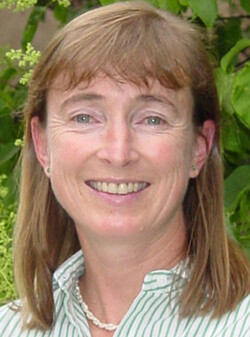
A Nov. 10 public lecture by Jennifer Francis, research professor in the Department of Marine and Coastal Sciences at Rutgers University, highlights a three-day workshop at the University of Nebraska-Lincoln examining the implications of a changing Arctic on the Midwest.
Francis will present “Crazy Weather and the Arctic Meltdown: Are They Connected?” at 7 p.m. in the Nebraska Innovation Campus Conference Center auditorium. The lecture will be live-streamed.
“Rapid warming and melting of the Arctic is contributing to an increase in extreme weather events in mid-latitudes, where most people live and most of our food is grown,” Francis said. “Recent studies suggest that faster Arctic warming will cause more persistent wet and dry spells, as well as more prolonged heat and cold, all of which will affect water resources and agriculture. But how Arctic change will interact with other natural climate fluctuations, such as El Niño, is still uncharted territory.”
Top researchers and policymakers have gathered at UNL to examine the implications of a changing Arctic on water resources and agriculture in the central United States. The workshop is providing a framework for future research, planning decisions and the identification of possible adaptation and mitigation measures, said Don Wilhite, professor and climatologist in UNL’s School of Natural Resources.
The UNL workshop is the first one held in conjunction with U.S. chairmanship of the Arctic Council, which was established in 1996 by eight Arctic nations and six indigenous people’s organizations. Last April, the United States assumed chairmanship of the Arctic Council. Secretary of State John Kerry is the organization’s chair.
The workshop is sponsored by UNL’s Institute of Agriculture and Natural Resources, Agricultural Research Division, Office of Research and Economic Development, National Drought Mitigation Center, High Plains Regional Climate Center and School of Natural Resources. Additional sponsors include the University of Nebraska’s Robert B. Daugherty Water for Food Institute, the National Oceanic and Atmospheric Administration and the U.S. Department of Agriculture.







